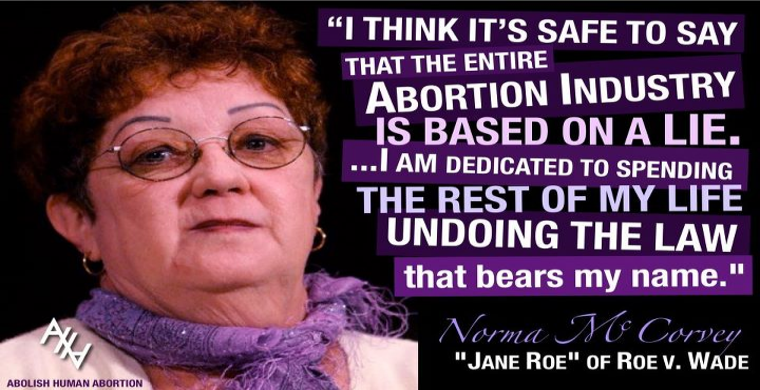Which the Lord would not pardon
Robert Hart
Special to Virtueonline
www.virtueonline.org
January 31, 2015
"Surely at the commandment of the LORD came this upon Judah, to remove them out of his sight, for the sins of Manasseh, according to all that he did; And also for the innocent blood that he shed: for he filled Jerusalem with innocent blood; which the LORD would not pardon." II Kings 24:3,4
The time of this writing is January 22, 2015, the forty-second anniversary of the infamous Roe vs. Wade decision by the Supreme Court of the United States. By now everyone knows the arguments. With modern medical science no informed person can doubt that the child in the womb is a human being, not merely a potential human being. Those who try to lie about that lie only to themselves, and I dare say, not very persuasively. They rationalize so as to deny what they know plainly and inescapably. So, let us get to the truth, the elephant in the room.
The arguments that were used to justify slavery and the Holocaust are not merely like the arguments used today to justify abortion. They are the same arguments. To justify one is to justify all three. For, at the very root of it all is one great lie; that we can distinguish between human life and personhood. The attempt to define personhood, instead of recognizing the objective fact of human life, exists to no good purpose, but only to rationalize a supposed justification for evil.
What is the point of pointing out the obvious anymore, that abortion is murder? The pro-abortion (so-called pro-choice) side is attempting now to push the boundary further, actually presenting serious arguments for "postnatal abortion." This moral imbecility was first promoted by Peter Singer several years ago, and is now starting to catch on.
In the West we like to think of ourselves as civilized people. We want to believe, each of us, that if we had lived in Germany in the 1930s and 40s, we would have been actively opposing Nazism. We want to remember that brief moment in history when the allies could say, with the facts on their side, that we are better people than our defeated enemies. Today, we look at the mass murder and other crimes of ISIS, and we want to be proud that we are better people. But, the truth is that our western countries are no better, morally, than the terrorists we very rightly condemn. The innocent blood that is shed every day, and has been shed every day for decades, is not hidden to the eyes of God. Nor can we believe that He makes a distinction between our murderous culture and their murderous culture. Both come under His perfect judgment.
And for that reason, we must mourn and repent. Like the Prophet Daniel, we must confess our sins and the sins of our people. We cannot afford to be like the Pharisee who thanked God that he was not like other men who were sinners. Perhaps the evils inflicted on our western countries by terrorists are just a beginning of judgment by God; not that He sides with them (for they are His enemies in word and deed), but that He gives no protection to our blood-stained countries.
What do we learn from the Second Book of the Kings? More than a generation after the evil King Manasseh, the Lord sent the Babylonians to inflict His judgment on His own people. What was the reason why the Lord would not pardon Judah and Jerusalem? It was the shedding of innocent blood. So, let us fear God's judgment.
In this world, we have no right to presume that God is on our side against enemies in war. And, when thinking of the Great Judgment, when each of us gives account to God, let us consider soberly our own ways. Have any of us contributed to the evils of this culture of death? Are any of us sharing in its sin? Are any of us beginning to weaken our stand and compromise in order to get along?
The reckoning coming on western civilization for the shedding of innocent blood is not merely a possibility; it is a certainty. As God's Church, we must lift up our voice prophetically to the world around us, and we must lift up our voices in prayer and intercession in the manner of Daniel. We must be working actively for life and justice on behalf of those who cannot speak for themselves.
"Open thy mouth for the speechless in the cause of all such as are appointed to destruction (Proverbs 31:8)."
Robert Hart is rector of St. Benedict's Anglican Catholic Church in Chapel Hill, North Carolina (Anglican Catholic Church Original Province). He also contributes regularly to the blog The Continuum. He is a contributing editor of Touchstone.














